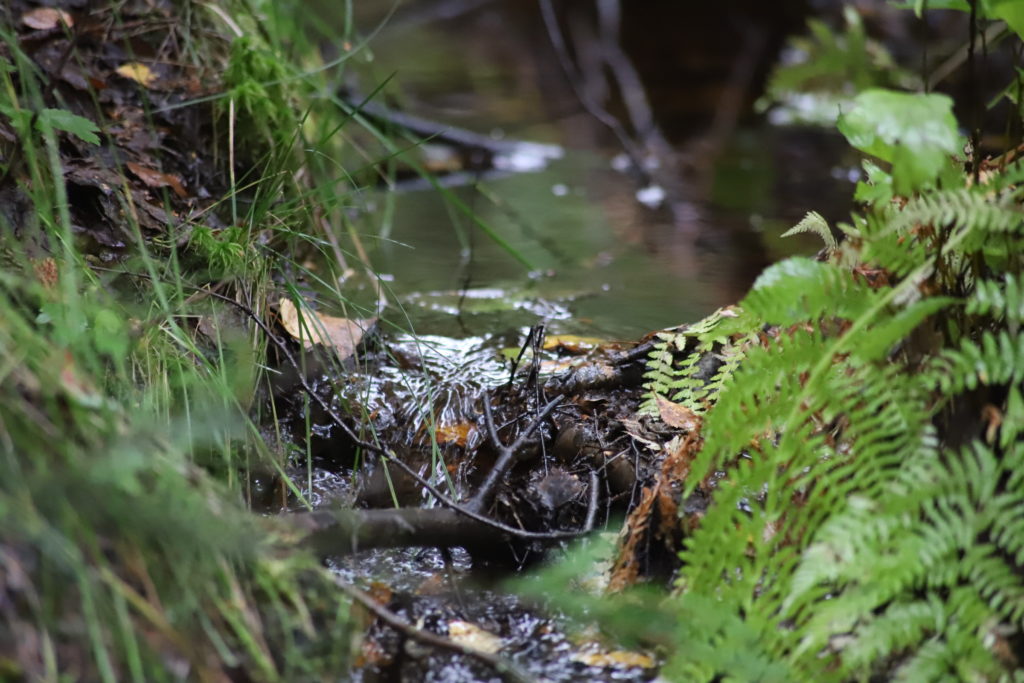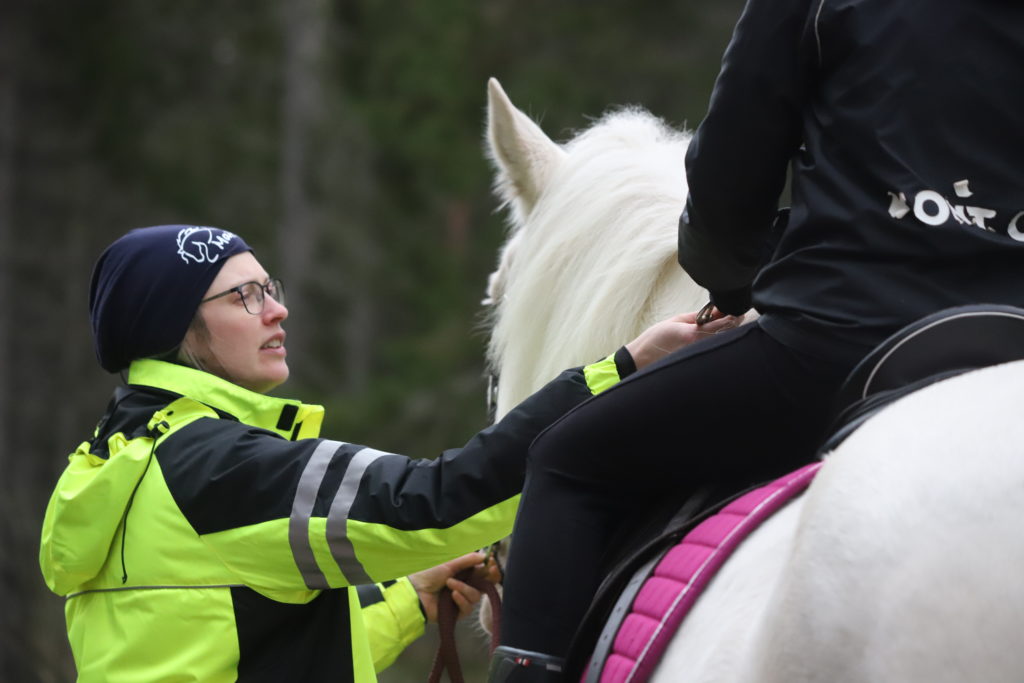Maria Hofman-Bergholm
Sara Kåll-Fröjdö
Athith Sagar

During the last three years we have, within different development projects at Centria University of Applied Sciences, spent time interviewing different types of entrepreneurs. This article will briefly touch upon sustainability and what a sustainable business is, and also provide the reader with some of the good advices the entrepreneurs have shared with us on starting up a new business. But first let’s start with a brief review on what sustainability is and what a sustainable business could be.
Sustainability
Sustainability and, above all, sustainable development has in recent years become a kind of buzzword that in some context and by some companies is used more for marketing purposes and “greenwashing” than to describe genuinely sustainable interests. You can read more about “greenwashing” as a concept in Hayes (2022). It is quite important that the sustainability concept is understood in a comprehensive way to be used in the right manner (Hofman-Bergholm 2018). Sustainable development is a multifaceted and interdisciplinary concept that affects our future through e.g. cultural, social, economic, political and ecological aspects in a complex interaction. These different aspects of sustainable development are intertwined with each other and cannot contribute alone to achieve a sustainable development. (Hofman-Bergholm 2022.)

When talking about the environment and sustainability, the context is often ecological and includes ecosystem services. The fundamental idea of sustainability means that we must maintain vital functions in the long term, such as food production, energy, clean water and a functioning hydrological cycle. You can think of the ecosystems on earth as a so-called capital stock that supplies people with a variety of goods, such as food, wood, fuel, carbon dioxide absorbers, water purifiers and recreation. These goods form the basis of human social and economic welfare. In addition to providing humanity with these goods, ecosystems also help to prevent the spread of disease through biological control. In addition, ecosystems provide humans with genetic and medical resources for prevention or cure of diseases. These all together constitute ecosystem services – the core of sustainability. (Hofman-Bergholm & Kåll-Fröjdö 2021; Sveriges Lantbruksuniversitetet 2022; Riksantikvarieämbetet 2017; Zurlini, Jones, Li & Petrosillo 2010; Sala, Meyerson & Parmesan 2009.)

What is a sustainable business?
Profitability, environmental considerations and community engagement are important factors that should permeate a sustainable business. This means that as an entrepreneur you should try to reduce the business’ climate and environmental impact, offer good working conditions and respect different rights. You should start from your own business in your sustainability work and make sustainability an integral part of the business. Get involved and take responsibility based on your company’s conditions, use your resources as efficiently as possible and strengthen the long-term perspective of your company through an active community engagement. An active social commitment also strengthens your marketing and improves customer relations. (Hållbarhet 2022.)

We assume that all entrepreneurs want their business to also be ethically sustainable. But what does this really mean? Ethics is not itself a recipe for increased profitability. Ethics is about values and basic things like showing responsibility, having a good gut feeling, feeling pride and being able to sleep well at night. If you succeed in creating an ethical value base, it may be positive for the company’s survival and profitability in the long run. Ethics simply means “what is right and good”, you could also say that it is guidelines for how to live with and relate to other human beings and the world. If you connect this to entrepreneurship and ethical business, one should ask how one’s business affects other people’s lives and what is the company’s responsibility for this impact. You also must keep in mind how your business functions according to laws and regulations.
These aspects might be easier to consider before starting your company. Perhaps this is also easier to apply to small and medium-sized companies. Large, already established companies have greater challenges in developing and following sustainable business strategies due to the core aim of conventional business, which is to generate economic value and profits for owners and shareholders (Long 2020). The transition to sustainable business is both necessary and urgent as business bears responsibility for many of the current existing environmental and social problems through e.g. destruction of habitats, pollution, and exploitative working conditions (ibid.). To not only reduce these problems, but to reverse them, other values than the economic need to be in lead.

A sustainability strategy that includes the economic dimension is of course essential for the business to stay in the market. One way could be to consider economic values in the long term instead of in the short term. A fairly new approach, circular economy, advocates a net effect on the environment as opposed to the now existing norm, the linear economy. In linear economy you continue to extract and use natural resources for products that then become waste (ibid.). If a circular economy becomes reality based on the fundamental value, namely a net effect on the environment, great progress would be reached within environmental issues. Sustainable strategies are now evident in the business world, but they are still not the norm. A change in the mindset is needed for further progress (Long 2020).
More and more companies prioritize and use sustainability in their marketing, but it is important that the marketing cannot be perceived as misleading. As an entrepreneur, you need to have a clear picture of how and in which areas the company contributes to sustainability in order to be able to communicate the sustainability work externally. In your business you need to consider how you can work sustainably with raw materials in your design and product development, your waste and recycling, transport and distribution, your production, energy, and premises. (Hållbarhet 2022.)

If you are looking for more ideas on how to make your business a sustainable business you can have a look at Sweden’s business organization, “Företagarna” (Hållbarhet 2022), that has created a sustainability portal to help small businesses work with sustainability issues. There are various tools, facts, tests, and guides to make it easier for you to get a grip on how you can contribute to sustainability. In Finland there are also regional business and development companies such as KOSEK, VASEK, Dynamo and Concordia who offer help and e.g. have created a sustainability plan for entrepreneurs (VASEK 2022).
Things to consider before starting a new business
There is no single factor that makes a new business successful. Many factors have to go hand in hand to end up being a successful company. Marketing is as important as the product. A great idea in a bad market is likely to fail. Never do business in isolation without networking. Always shamelessly ask for feedback at any stage and talk to the potential product users early.
You also need to learn the art of communicating. In the modern world it is not enough to have a fancy website to get more customers when you start a small business. You need to talk to a lot of people. Hence, practice the art of selling by communicating. Of course, it is difficult to become a pro at everything, but the art of selling your ideas plays a significant role in small businesses at the start.

If you are not starting a business on your own, you should select the right people to collaborate with. Two to three passionate persons are better than 100 persons without the passion. Make sure the people you are working with understand the company’s culture and are skilled in their own way that caters to the needs of the company. This takes a business a long way. The list below summarizes some good advice to new startups from nature entrepreneurs interviewed during our development.
Some good advices from other entrepreneurs before you start up a new business
- As an entrepreneur, it is very difficult to be a pro at everything, somehow you have to find what you can do and get help in what you can’t. It takes a lot of energy from what you really want to do and is good at, if you struggle with something you can’t.
- Get help from others. Check with others you know and discuss the ideas.
Take help from them who are knowledgeable in the field, with the things you don’t know. You may need to get a handle on the financial issues or other. Listen quite a lot to what others think would work or not. Then shall you trust your own skills, and if you’re driven, it usually works out, most of the time anyway. - Connect with a marketer. Find a mentor. Pair up with someone who has similar ideas.
It’s not competition, there’s room for everyone. Diversity enriches.
All companies have something unique, if nothing else then the person who drives them.
Don’t be afraid to find companions, collaborate with others who work with similar.
You can support and encourage each other, and that’s it more fun to work together. - Networking and maintaining good contacts are important for marketing the business.
- Financial sustainability is important when the company is a full-time job. You have to work long-term and what you are doing must be financially profitable, so that you do not sell to underpriced, especially if you have your business full-time. It’s different if it’s a side job, though if you’re going to live on it, it has to come together.
- Dare to make investments, but do not burden the personal finances – find a balance.
If you have the opportunity to get financing in some way, via startup founders or other
activities, is of course a plus. - You must dare to try and not be afraid to fail.
- Remember that your pricing also affects others in the industry.
- Check regulations and draw up necessary documents.
- It is sustainable to take time to build up your business. Don’t stress through the process, make the product and concept fit before going big.
- Leave as little trace of your business as possible.
- Take care of your own sustainability. Remember your own recovery, to reserve time for yourself and also to have time off/holidays. Keep track of how many hours you put in, so that the workload is reasonable.
References
Hayes, A. 2022. What Is Greenwashing? How It Works, Examples, and Statistics. Available at: https://www.investopedia.com/terms/g/greenwashing.asp. Accessed 19.12.2022.
Hofman-Bergholm, M. 2018. Could Education for Sustainable Development Benefit from a Systems Thinking Approach? Systems 6(43). Available at: https://doi.org/10.3390/systems6040043. Accessed 19.12.2022.
Hofman-Bergholm, M. 2022. Storytelling as an Educational Tool in Sustainable Education. Sustainability 14 (2946). Available at: https://doi.org/10.3390/su14052946. Accessed 19.12.2022.
Hofman-Bergholm, M & Kåll-Fröjdö, S. 2021. Naturföretagarens guide till naturens hälsoeffekter och ett hållbart företagande. Vasa: Nordic Nature Health Hub.
Hållbarhet. Företagarna. Available at: https://www.foretagarna.se/driva-eget-foretag/hallbarhetsportalen/. Accessed 19.12.2022.
Long, T. B. 2020. Sustainable business strategy. Encyclopedia of the UN Sustainable development goals: decent work and economic growth.
Riksantikvarieämbetet. 2017. Räkna med kulturarvet: Kulturarvets bidrag till en hållbar samhällsutveckling. 2:a reviderade upplagan. Stockholm: Riksantikvarieämbetet.
Sala, O. E., Meyerson, L. A. & Parmesan, C. (eds.) 2009. Biodiversity change and human health. From ecosystem services to spread of disease. Scientific Committee on Problems of the Environment, vol. 69. Covelo: Island Press.
VASEK. Sustainability Vaasa Region Development Company VASEK. Available at: https://www.vasek.fi/vaasa-region-development-company/sustainability/. Accessed 19.12.2022.
Sveriges Lantbruksuniversitetet. 2022. Vad är ekosystemtjänster? Available at: https://www.artdatabanken.se/arter-och-natur/biologisk-mangfald/vad-ar-ekosystemtjanster/. Accessed: 7.3.2022.
Zurlini, G., Jones, K. B., Li, L. & Petrosillo, I. 2010. Potentials of ecosystem service accounting at multiple scales. Encyclopedia of Earth. Available at: https://www.academia.edu/4240324/Potentials_of_ecosystem_service_accounting_at_multiple_scales. Accessed: 7.3.2022.
Maria Hofman-Bergholm
RDI-expert
Centria University of Applied Sciences
Tel. 040 356 3305
Sara Kåll-Fröjdö
RDI-expert
Centria University of Applied Sciences
Tel. 040 487 9634
Athith Sagar
RDI-expert
Centria University of Applied Sciences
Tel. 040 635 9442


